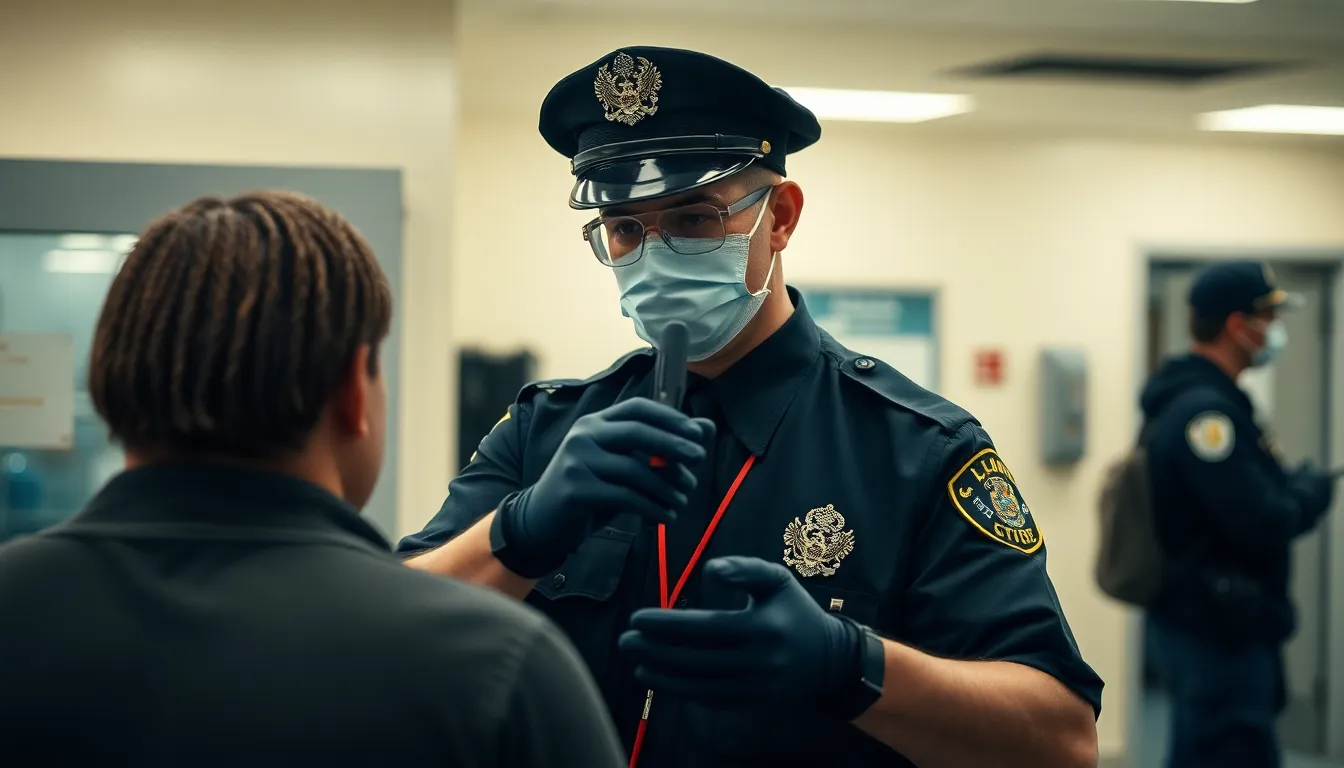Cavity searches might sound like a scene straight out of a crime drama, but they’re very real and often necessary in certain situations. Picture this: you’re minding your own business, maybe enjoying a coffee, when suddenly you find yourself in a situation that requires a more thorough inspection. It’s not just about finding contraband; it’s about safety and security.
Table of Contents
ToggleWhat Is A Cavity Search?
A cavity search is a thorough examination of a person’s or an individual’s body cavities, typically performed by law enforcement or security personnel. Areas commonly targeted during these searches include the mouth, rectum, and vagina. Such searches aim to uncover concealed contraband, weapons, or illegal substances.
Law enforcement officers usually conduct these searches if they suspect individuals are hiding items internally. Legal standards often require probable cause to authorize a cavity search, ensuring compliance with constitutional rights. Many jurisdictions, such as various states in the U.S., have specific regulations governing when and how these searches can occur.
Under routine circumstances, individuals may undergo cavity searches in various settings, including during arrests, at prisons, or while at border control. Security personnel occasionally employ these searches in airports when they detect suspicious behavior or items. Each case may differ, depending on the perceived threat level and the environment.
Participating in a cavity search entails a set procedure that seeks to maintain the dignity of the person being searched. Officers typically offer witnesses during the search process to ensure transparency and minimize allegations of misconduct. Personnel often utilize gloves and other protective equipment to maintain hygiene and reduce the risk of cross-contamination.
Overall, while cavity searches can seem invasive, they serve a vital role in maintaining safety and security in various contexts. The necessity for these searches arises from legitimate concerns regarding concealed dangers that could otherwise go unnoticed.
Purpose Of A Cavity Search

Cavity searches serve specific purposes in law enforcement and security. Their primary function is to uncover concealed items that pose safety risks.
Legal Justifications
Probable cause forms the foundation for conducting cavity searches. Such searches align with constitutional rights and ensure that privacy is respected. Law enforcement must adhere to specific regulations that govern the search process. These regulations vary among jurisdictions, reflecting local laws and practices. A warrant often substantiates the search, adding another layer of legal protection. Officers conduct these searches in settings where safety concerns necessitate thorough examinations. Compliance with legal standards aims to balance security needs with individual rights.
Safety Concerns
Cavity searches address significant safety concerns within various environments. Security personnel prioritize the detection of weapons, contraband, and illegal substances that may threaten public safety. Planning such searches includes considerations for the dignity of the individual involved. Transparency occurs through witness presence during the search, as a measure to reassure those affected. Protective equipment is commonly utilized to maintain hygiene throughout the process. Law enforcement aims to minimize potential harm while ensuring community safety. Recognizing these factors emphasizes the importance of executing searches responsibly and ethically.
Procedures Involved In A Cavity Search
Cavity searches involve specific procedures to ensure legality and safety. They address various factors such as the type of search and how it’s conducted.
Types Of Cavity Searches
Body cavity searches generally fall into two categories: visual inspections and physical examinations. Visual inspections include a thorough examination of exterior body cavities while physical examinations involve the insertion of fingers or instruments into those cavities. Both types aim to uncover concealed items. Situational context often dictates the choice of search type. Searches in correctional facilities usually rely on physical examinations due to heightened security risks.
Conducting The Search
Conducting a cavity search requires adherence to strict protocols. Trained personnel, often consisting of law enforcement or security officers, perform these searches in a controlled environment. Privacy must be maintained by having a same-gender officer present if feasible. Typical steps include requesting consent or obtaining a warrant, followed by proper hygiene practices. Personnel should wear gloves and use appropriate tools to mitigate health risks. Transparency is vital; maintaining witness presence serves as an additional safety measure.
Legal Rights During A Cavity Search
Cavity searches involve significant legal considerations. Rights of individuals during these searches require careful protection to ensure fairness and legality.
Rights Of The Individual
Individuals undergoing a cavity search maintain specific rights. They retain the right to be informed of the reason for the search, ensuring transparency. Consent plays a crucial role; individuals can refuse a search unless law enforcement has probable cause or a warrant. Privacy is paramount, so searches should occur in a private setting whenever possible. An individual has the right to request a same-gender officer for the search to ensure comfort. Additionally, they can request witness presence for protection against misconduct. Importantly, if individuals believe their rights were violated, they can pursue legal recourse.
Responsibilities Of The Authorities
Authorities conducting cavity searches must adhere to established protocols. Training for law enforcement officers is essential to respect individual rights and ensure proper procedures. Officers must provide clear documentation of the search rationale to support legality. Maintaining dignity during the search is critical; officers should minimize unnecessary invasiveness. Compliance with hygiene standards helps safeguard individuals’ health. Conducting searches in private spaces helps limit public exposure. Additionally, authorities need to ensure that witnesses are present during the procedure, enhancing accountability and transparency throughout the process.
Cavity searches serve a critical function in ensuring safety and security in various settings. While they can be invasive and uncomfortable for individuals, the necessity of these searches often outweighs the discomfort involved. Adhering to legal protocols and maintaining the dignity of those being searched is essential for law enforcement and security personnel. By understanding the procedures and legal rights associated with cavity searches, individuals can navigate these situations with greater awareness and confidence. Ultimately, the balance between public safety and personal rights remains a pivotal aspect of the discussion surrounding cavity searches.



